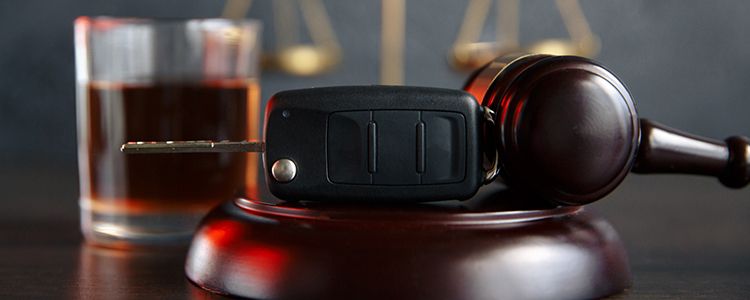If you’ve ever found yourself asking, “can you get a DWI off your record?”, you’re not alone. For many people, aDWI isn’t just a legal charge—it’s a life-altering mark that affects job opportunities, insurance premiums, housing, and even personal relationships. It’s a common question with a not-so-simple answer. The truth? It depends heavily on your state, your case’s outcome, and what steps you’re willing to take.
In this guide, we’re going to unpack everything you need to know about getting a DWI off your record. We’ll explore real-world examples, state-specific laws, the difference between expungement and record sealing, and what your realistic options are. Most importantly, we’ll do it in plain English—no legal jargon, no confusion.
Let’s break it all down so you can finally understand your rights and what the law really allows when it comes to wiping that mistake off your record.

What Does It Mean to “Get a DWI Off Your Record”?
To start, let’s define the core question: can you get a DWI off your record, and what does that even mean?
When people talk about “getting a DWI off their record,” they usually mean one of two things:
- Expungement – a legal process that completely erases the arrest or conviction from your criminal record. It’s as if it never happened.
- Record sealing (nondisclosure) – a process where your record still exists, but is hidden from public view, including most employers, landlords, and background checks.
Both options have different eligibility requirements and different impacts. But both aim to give people a second chance—especially if the DWI was a first offense or you’ve stayed out of trouble since.
Real-Life Example: A Second Chance in Texas
Let’s look at Erica’s story. Erica was arrested for DWI in San Antonio after leaving a birthday dinner. HerBAC was 0.09%, just barely over the legal limit. She hired a lawyer and accepted a plea deal that allowed her to complete probation and take alcohol education classes in exchange for a reduced charge. Years later, Erica wanted to apply for a nursing license—but her record kept showing up in background checks.
Her attorney filed a petition for order of nondisclosure under Texas law. After a waiting period and a clean record, the court granted it. Today, most employers no longer see her DWI on background reports.
So when people ask can you get a DWI off your record, Erica’s story is a great example of how the answer can be “yes”—under the right circumstances.
Can You Get a DWI Off Your Record in All States?
Not necessarily. This is where things get complicated. The ability to get a DWI off your record depends on the laws in your state. Some states are strict, others more forgiving.
States with Expungement or Sealing Options
- Texas – Offers nondisclosure for first-time DWI offenders under specific conditions.
- California – Allows expungement of misdemeanor DWIs if probation is completed.
- New York – Doesn’t offer true expungement, but allows record sealing in some cases.
- Illinois – Does not expunge or seal DUI convictions at all.
- Florida – Generally does not expunge or seal DUI records, even for first offenses.
This means that the answer to can you get a DWI off your record will vary depending on where you were arrested and how your case was resolved.
Key Factors That Affect Whether You Qualify
Let’s say you live in a state that does allow expungement or nondisclosure. What’s next? Eligibility usually depends on these main factors:
Was It a First Offense?
Most expungement or sealing laws are designed for first-time offenders. If you’ve had multiple DWIs, chances are slim that you’ll be eligible to clear your record.
Was There a Conviction?
If yourDWI charge was dismissed, not prosecuted, or resulted in acquittal, you likely qualify for expungement in many states.
On the other hand, if you were convicted, you’ll need to explore record sealing options—or, in some states, you may be out of luck entirely.
Did You Complete Probation or Court Requirements?
Many states require you to have:
- Completed all terms of probation
- Stayed arrest-free for a specified number of years
- Paid all fines and fees

Failing to meet any one of these requirements can block your petition.
Was Anyone Injured?
If your DWI involved an accident or bodily injury, your chances of expungement or nondisclosure drop significantly. These cases are viewed more seriously by courts and are often excluded from eligibility.
What Is the Difference Between Expungement and Sealing?
This is a question that comes up often when people ask, can you get a DWI off your record.
Expungement
- Erases the record entirely
- Treats the event like it never happened
- Only available in limited circumstances
- Can be beneficial when applying for jobs, housing, or licenses
Sealing (Nondisclosure)
- The record still exists, but is hidden from public view
- Law enforcement and certain government agencies may still access it
- Most background checks won’t show sealed records
- More commonly available than full expungement
Understanding the difference helps you set realistic expectations—and choose the right legal path.
Real-Life Example: The Employer That Saw What No One Else Could
After his DWI was sealed under a nondisclosure order, Marcus applied for a sales role at a major firm. He passed the background check and got hired. Years later, when applying for a government job, the sealed DWI came up in the agency’s deeper review.
This highlights that sealing isn’t the same as erasing. So if you’re asking can you get a DWI off your record, make sure you know what “off” really means.
How to Start the Process of Getting a DWI Off Your Record
If you’ve made it this far, and you’re wondering how do I start the process, here’s a step-by-step outline.
Step 1: Request Your Criminal History
Start by pulling your full criminal background report. This helps verify what’s actually listed—and ensures you’re not surprised in court.
Step 2: Check State Law
Review your state’s laws on expungement or sealing. Focus on:
- Waiting periods
- Eligibility conditions
- Filing fees
If you’re not sure, a quick call to a local criminal defense attorney can save you hours of frustration.
Step 3: Hire an Attorney (Strongly Recommended)
This isn’t a DIY project. Petitioning for expungement or nondisclosure involves legal paperwork, deadlines, and hearings. An experienced attorney knows how to present your case and maximize your odds.

Step 4: File the Petition
You’ll need to file a formal petition with the court that handled your original DWI case. Be ready to submit:
- Proof of completed probation
- Proof of paid fines
- A personal statement or affidavit
- A copy of the court judgment or order
Step 5: Attend the Hearing
Some states require a hearing before granting expungement or sealing. Be prepared to answer questions and explain why you deserve a second chance.
Common Mistakes People Make
When exploring whether you can get a DWI off your record, avoid these common pitfalls:
- Assuming a sealed record is completely erased
- Failing to complete court-ordered classes or probation
- Not checking eligibility before filing
- Hiring a general lawyer instead of a criminal defense specialist
- Missing deadlines or using outdated forms
A single mistake can set you back months or lead to denial. Being organized from the start can make the difference.
How Long Does It Take to Get a DWI Off Your Record?
The timeline varies by state and court workload. On average:
- Expungement: 4 to 12 months
- Sealing (Nondisclosure): 2 to 6 months
That said, some petitions can move faster—especially if no hearing is required and your paperwork is in order.
Real-Life Timeline: A Fast-Track Success
Jenny filed for nondisclosure of her first DWI in Texas after completing her deferred adjudication. Because she had no other offenses, submitted flawless paperwork, and hired a knowledgeable attorney, her petition was approved in just under three months.
If you’re asking can you get a DWI off your record quickly, the answer depends on how prepared you are.
Will the DWI Still Affect You After Expungement or Sealing?
Even after sealing or expungement, the DWI may still have indirect consequences. For example, certain agencies and institutions are granted deeper access to criminal records even if they’ve been restricted from public view.
Security clearances may still consider sealed records. Government entities that conduct extensive background investigations often have the authority to examine sealed or expunged cases.
Some professional licenses require full disclosure. Licensing boards for doctors, nurses, lawyers, and teachers may still ask about expunged DWIs and expect honesty during the application process.
Immigration applications might still request original arrest details. U.S. immigration authorities can view sealed criminal records when evaluating visas, green cards, or citizenship eligibility.

So while the record may not appear in a standard background check, it’s still wise to consult with an attorney before pursuing sensitive positions or legal filings. Taking the time to understand these exceptions can help you avoid future surprises that could cost you job offers or legal standing.
Final Thoughts: Can You Get a DWI Off Your Record?
So, can you get a DWI off your record? The answer is—it depends, but often yes, if you meet certain conditions.
Expungement is rare but powerful. Sealing or nondisclosure is more accessible and can be life-changing. Either way, it’s worth exploring your options, especially if a single mistake continues to affect your future.
Don’t let confusion or fear keep you from taking action. The law does allow for second chances. And if you meet the criteria, that past mistake doesn’t have to define the rest of your life.

